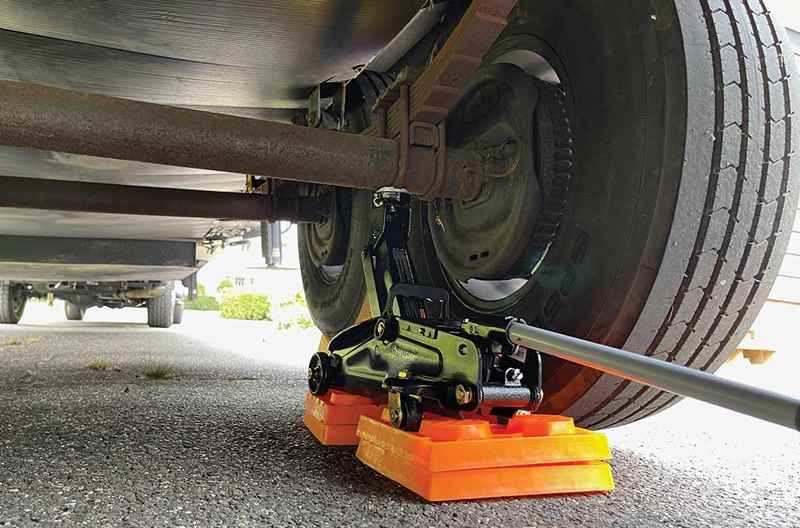Legal Medications and Substances for Tourists in Dominican Republic: Complete Travel Guide
Understand Dominican Republic’s medication laws for travelers
The Dominican Republic welcome millions of tourists yearly, and understand the country’s pharmaceutical and substance regulations help ensure a smooth, legal visit. Like most Caribbean nations, the Dominican Republic maintains strict controls over certain medications and substances while allow common treatments and prescriptions under specific conditions.
Tourists can lawfully bring personal prescription medications into the Dominican Republic, provide they follow proper documentation procedures. Over the counter medications wide available in North America and Europe are broadly permit and oftentimes available at local pharmacies throughout the country.
Prescription medications: what you can bring
Travelers may bring prescription medications for personal use during their stay. The key requirement involve carry medications in original pharmacy containers with clear labeling show your name, prescribe physician, and medication details. This documentation proves the medication’s legitimacy and intend use.
Common prescription medications like blood pressure treatments, diabetes medications, heart medications, and most antibiotics are permit when right document. Travelers should bring exclusively the quantity need for their trip duration, plus a few extra days’ supply for unexpected delays.
For control substances like anxiety medications, sleep aids, or pain medications contain opioids, additional precautions apply. These medications require a doctor’s letter explain the medical necessity, dosage instructions, and treatment duration. The letter should be recent, sooner date within 30 days of travel.
Over the counter medications and availability
Most over the counter medications familiar to international travelers are legal and available in Dominican Republic pharmacies. Common pain relievers like Tylenol, ibuprofen, and aspirin are wide available. Allergy medications, antacids, cold and flu treatments, and basic first aid supplies can be purchased at pharmacies in tourist areas and major cities.
Many international pharmacy chains operate in the Dominican Republic, specially in tourist zones like Punta Cana, Puerto Plata, and Santo Domingo. These pharmacies oftentimes stock familiar brands and generic equivalents of popular medications.
Travelers should note that some medications available without prescription in their home countries may require prescriptions in the Dominican Republic. Consult with hotel concierge services or local pharmacists can clarify availability and requirements for specific medications.
Prohibit substances and strict enforcement
The Dominican Republic maintain zero tolerance for illegal drugs and unauthorized control substances. Marijuana, cocaine, heroin, and other recreational drugs remain purely prohibit with severe legal consequences for possession, use, or trafficking.
Flush small amounts of illegal substances can result in immediate arrest, lengthy detention, and significant legal penalties. Dominican authorities do not distinguish between tourists and residents when enforce drug laws, and claim ignorance provide no legal protection.
Some substances legal in certain jurisdictions remain prohibit in the Dominican Republic. CBD products, despite grow acceptance elsewhere, exist in a legal gray area and should be avoided to prevent complications with customs or law enforcement.
Alcohol regulations and tourist considerations
Alcohol is legal and wide available throughout the Dominican Republic for adults over 18 years old. The country produce excellent rum and beer, and alcoholic beverages are sell in restaurants, bars, hotels, and retail establishments.
All-inclusive resorts typically include unlimited alcoholic beverages in their packages. Withal, travelers should consume alcohol responsibly, as public intoxication can lead to legal issues or safety concerns.
Drive under the influence carry serious penalties, include license suspension, fines, and potential imprisonment. Tourists should use taxis, ride-share services, or designate drivers when consume alcohol.
Tobacco products and smoking regulations
Tobacco products are legal for adults in the Dominican Republic, and the country produce world renowned cigars. Cigarettes, cigars, and other tobacco products are available for purchase and consumption in designate areas.

Source: turnbridge.com
Smoking restrictions apply in enclose public spaces, restaurants, and many hotels. Most resorts designate specific smoking areas to accommodate guests while maintain clean air in common areas.
Travelers can bring reasonable quantities of tobacco products for personal use, typically up to 200 cigarettes or equivalent tobacco products, without pay additional duties.
Documentation and customs procedures
Proper documentation prevent medication relate issues at customs. Travelers should prepare a comprehensive medication list include generic names, as brand names may differ internationally. This list should include dosages, prescribe physicians, and medical conditions being treated.
For control substances, additional documentation include recent medical records, prescription history, and physician contact information. Have this information pronto available expedites customs processing and demonstrate legitimate medical need.
Travel insurance documentation should besides be accessible, as it may be required for certain medical treatments or prescription refills during extend stays.
Local pharmacy services and medical care
Dominican Republic pharmacies offer professional services include prescription filling, medication counseling, and basic health consultations. Many pharmacists speak English, specially in tourist areas, facilitate communication for international visitors.
Prescription refills may be possible for certain medications, though travelers should not rely on this availability. Some medications require local physician consultations before dispense, which can be arranged through hotel services or medical tourism facilities.
Major cities and tourist zones have modern medical facilities staff by qualified physicians who can prescribe medications and provide treatment for various conditions. Travel insurance oftentimes cover these services, make medical care accessible and affordable.
Special considerations for extended stays
Tourists plan extend stays should consider medication supply management. While short term visitors can typically bring sufficient medications, longer stays may require prescription refills or alternative arrangements.

Source: rehabnet.com
Establish relationships with local physicians can facilitate ongoing medical care and prescription management. Many doctors in tourist areas have international training and experience treat foreign patients with various medical conditions.
Medical tourism is grown in theDominican Republicc, with facilities offer high quality care at competitive prices. These facilities oftentimes coordinate medication management and prescription services for international patients.
Emergency situations and medical assistance
Medical emergencies require immediate medication access are handle through the Dominican Republic’s healthcare system. Emergency rooms and urgent care facilities can provide necessary medications and treatments disregardless of tourist status.
Travel insurance with medical coverage prove invaluable during emergencies, cover medication costs, medical treatments, and potential medical evacuation. Travelers should understand their coverage limitations and procedures for access benefits.
Embassy and consulate services can assist with medication relate emergencies, include connect travelers with local medical resources and facilitate communication with home country physicians.
Cultural and social aspects
Dominican culture mostly accept responsible medication use for legitimate medical purposes. Notwithstanding, discretion is appreciated, peculiarly with medications that might be misunderstood or stigmatize.
Mental health medications, while legal and accept medically, may not be wide to understand culturally. Travelers should maintain privacy regard such treatments while ensuthey have’ve necessary supplies and documentation.
Local attitudes toward substance use align with conservative Caribbean values, emphasize the importance of follow legal guidelines and respect cultural norms during visits.
Practical tips for medication management
Successful medication management during Dominican Republic visits require advance planning and organization. Travelers should pack medications in carry on luggage to prevent loss and maintain access during flights and layovers.
Climate considerations include protect medications from heat and humidity, which can affect stability and effectiveness. Air condition storage and moisture resistant containers help preserve medication quality.
Time zone adjustments may affect medication schedules, specially for time sensitive treatments like insulin or heart medications. Consult with prescribe physicians before travel help establish appropriate dose schedules for different time zones.
Language barriers can complicate medication discussions, so travelers should learn basic Spanish terms for their conditions and treatments, or carry translation cards with essential medical information.
Legal resources and support
Understand legal resources available to tourists help address any medication relate issues that arise. The Dominican Republic maintain tourist police units specifically train assisting international visitors with various concerns, include legal questions.
Embassy services provide crucial support for serious legal issues, include medication relate violations or misunderstandings. Maintain embassy contact information and understand available services prove valuable for any traveler.
Legal representation may be necessary for serious medication relate violations, and travel insurance sometimes include legal assistance coverage. Understand these resources before travel provide peace of mind and practical support options.
The Dominican Republic’s approach to tourist medication laws balance public safety with recognition that visitors may have legitimate medical needs. By follow proper procedures, maintain appropriate documentation, and respect local laws, tourists can enjoy their Caribbean vacation while manage their health needs efficaciously and lawfully.



